Hunting Season Preparation: Tips and Tricks
Understanding the significance of meticulous preparation for a hunting season cannot be overstated. Effective preparation increases the likelihood of a successful hunt and ensures safety and sustainability in the process. Integral to this preparation is developing a comprehensive strategy that sets the foundation for a fruitful season.
The key to this strategy is familiarizing oneself with the hunting area. A practical step is to have a detailed map and protect it against the elements by placing it in plastic. This enables hunters to navigate the terrain more effectively, identify potential hunting spots, and understand the layout of the land, including water sources and animal trails.
Leveraging community knowledge
Engaging with others with a passion for hunting can also provide invaluable insights. Many hunters are open to sharing knowledge about the best times and places to find game, such as deer. Conversations with the local conservation officer can be particularly enlightening. These officers monitor wildlife populations and are also a treasure trove of hunting tips. However, it’s important to be mindful of local laws and understand that some information may be confidential.
In essence, thorough preparation for a hunting season is a multifaceted endeavor involving strategic planning, learning from official and unofficial sources, and understanding the terrain. By adopting such an approach, hunters set themselves up for a rewarding and responsible hunting experience.
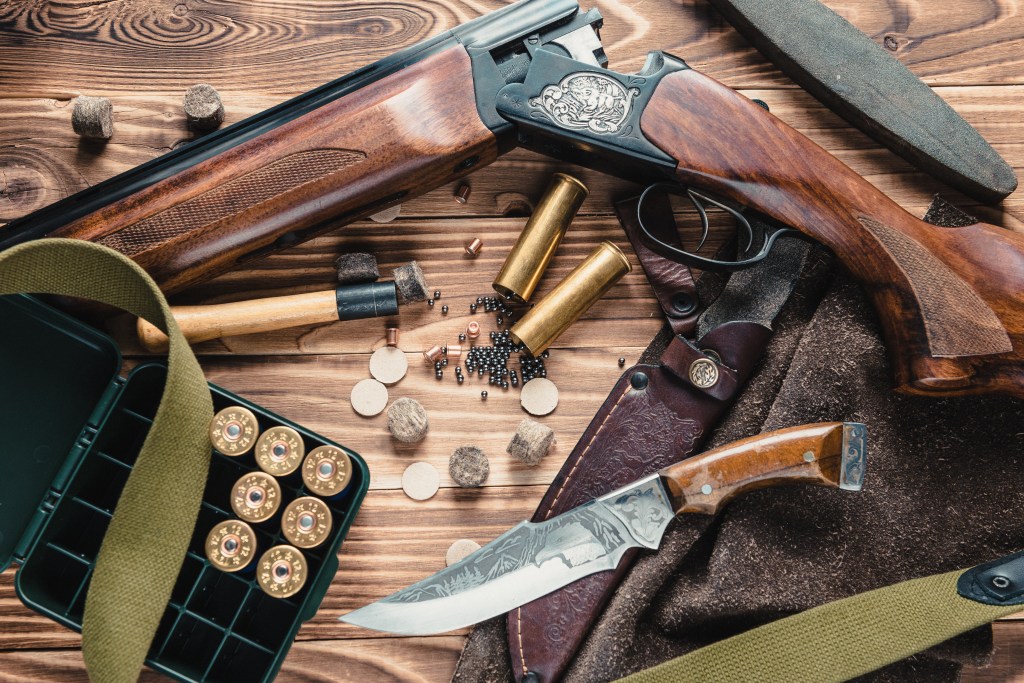
Creating Your Hunting Checklist
Creating a comprehensive hunting checklist is crucial for ensuring you have all the necessary items for a successful hunt.
Preparation is key
Preparations should start early, ideally a couple months prior before the hunting season begins. This timeframe allows for physical preparation, especially if the hunt involves a significant hike or carrying big game.
It’s also crucial to familiarize yourself with the hunting area, practice shooting, and if applicable, practice animal calls. Breaking in new boots and purchasing required tags are also important steps during this phase.
A week before the hunt, final preparations should include checking and stocking up on batteries, assembling pack items, and informing friends and family of your whereabouts and expected return. It’s also a good time for a last-minute gear check, weather forecast review, knife sharpening, and electronics check.
Supply checklist
Regarding supplies, having registration, tags, and your license up to date is essential. One must also be familiar with the local hunting laws.
The checklist should cover sufficient ammunition, a clean and ready firearm or bow, game calls, binoculars, and orange ribbons for trail marking. Make sure you pack food and water, with at least two quarts of water per person and enough food for a day, alongside water filtration options.
Navigation tools such as maps, a compass, or a charged GPS must be readily available, along with a first aid kit and toilet paper. Other necessities include a blanket, waterproof matches, a candle, and a flashlight with extra batteries (a headlight is also useful). If camping, appropriate shelter, and sleeping gear should not be forgotten.
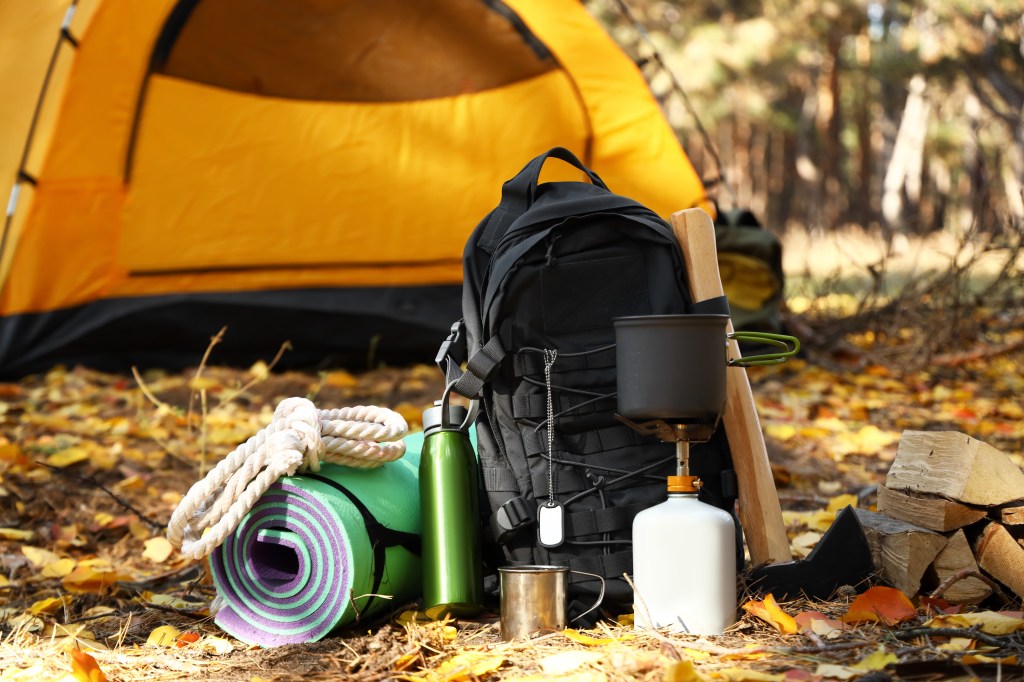
Essential Hunting Gear and Equipment
When preparing for a hunting season, it’s crucial to equip yourself with the necessary gear and equipment to ensure both productivity and safety in the great outdoors.
Let’s delve into some essential items every hunter should have on their checklist and gear list.
Clothing
The base layer is fundamental for clothing. Opt for moisture-wicking materials such as wool, silk, or synthetic fibers like nylon or polyester to stay dry. Brands dedicated to producing base layers capable of blocking scent are available, which is an added advantage in the field.
Furthermore, rain gear is indispensable. It keeps you dry, thereby preventing hypothermia, and the right rain gear with ventilation can make your hunting experience much more comfortable and helps you stay warm.
Tools
A good selection of blades and knives should cover various purposes. Fixed blades are prized for their durability and ease of maintenance, while a folding knife offers space-saving and versatility with different blade types. A multi-tool is highly recommended for those who prefer an all-in-one tool due to its versatility and space efficiency.
For navigation, it’s wise not to over-rely on your phone’s GPS, as cell service can be unreliable in remote areas. A navigation app can be helpful, but just be aware that reception might be spotty if you’re in the woods. Traditional navigation tools like a paper map and compass are invaluable; for those less familiar, a hunting GPS can be a handy alternative.
Emergency supplies
Emergency supplies are non-negotiable. Hunting is unpredictable, so being prepared for any situation is paramount. Water is essential, so consider carrying a water purification system, such as a UV filter or iodine tablets, alongside high-calorie foods or dried fruit to maintain energy levels. Keeping a bivy bag, space blanket, fire-starting materials, and a flashlight with extra batteries can be a lifesaver in critical circumstances.
Other supplies
Don’t forget other indispensable items like toilet paper, duct tape, game bags, binoculars, trash bags, and paracord, which might seem trivial but are incredibly useful in various situations. Packing wisely can mean the difference between a successful hunt and a potentially dangerous situation.
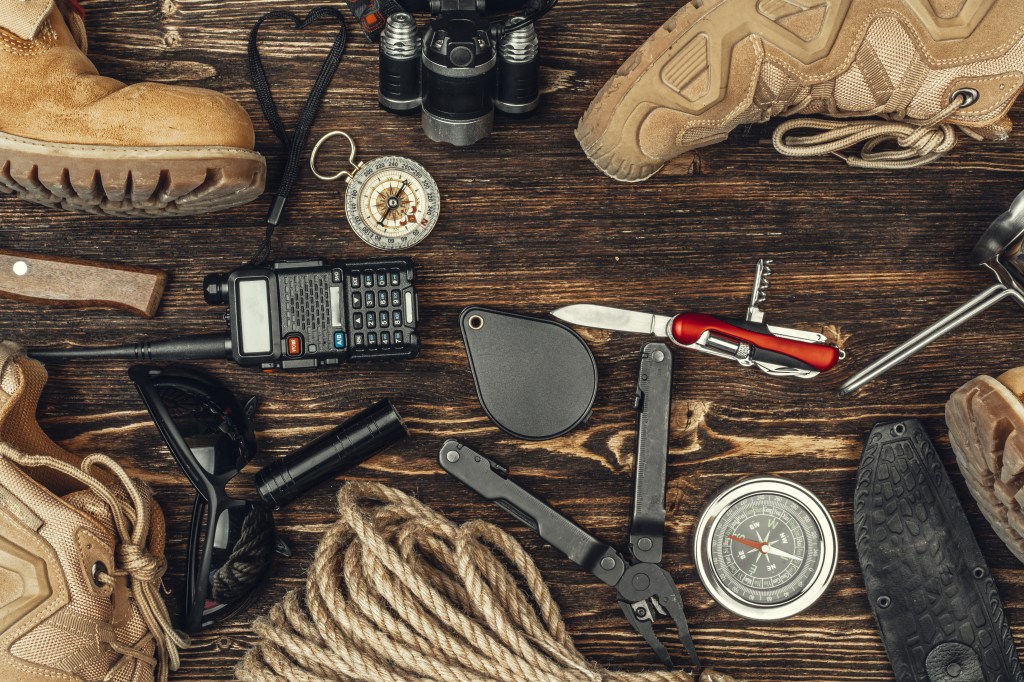
Pre-Season Hunting Tips and Safety Measures
As the hunting season approaches, it is crucial to prepare by scouting locations, checking your gear, and ensuring you are physically and mentally ready for the demands of hunting.
Physical fitness
Preparing your body for the season is as important as maintaining your equipment. It is essential to ensure that you are physically capable of climbing, lifting, and carrying heavy gear through potentially challenging terrains. Integrating cardio exercises, strength, and conditioning into your routine can significantly enhance your endurance and power, vital for a successful hunt.
Additionally, focusing on a healthy and well-balanced diet will provide the necessary energy and nutrients to sustain you through long days in the field.
Harness safety
Safety should always be top priority, especially when it comes to using elevated platforms such as tree stands. Implementing preventative measures to avoid falls is critical. A full-body harness is a non-negotiable safety item; staying connected to the tree from the moment your feet leave the ground until you safely return to it is imperative. This simple practice can prevent accidents and ensure that you return home safely to your loved ones after your hunting trip.
Check your gear
Moreover, attention to detail, such as the condition of your gear, is crucial. This includes cleaning and inspecting firearms, replenishing ammunition and provisions, and ensuring that clothing and footwear are in good condition. Being overprepared is far preferable to finding yourself lacking in essential supplies.
Scout locations
It’s also worthwhile to familiarize yourself with the hunting terrain beforehand, especially if it features challenging or unfamiliar geographic characteristics such as mountainous terrain. Understanding the environment enhances your safety and can increase your chances of a successful hunt.
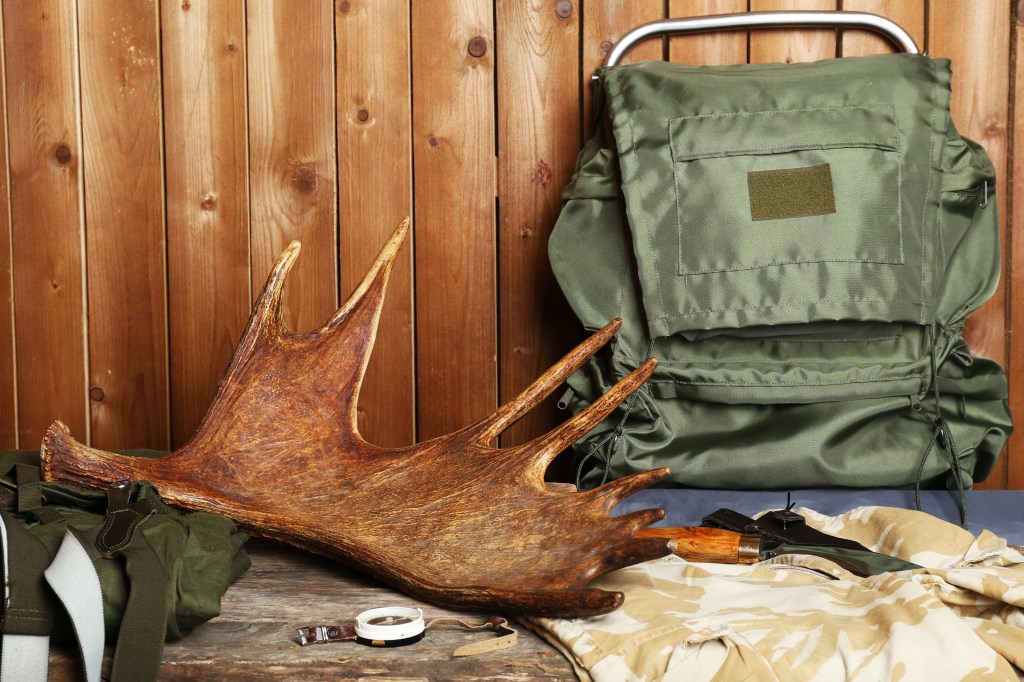
Planning Your Hunting Trip: Strategy and Locations
When planning your hunting trips, it’s crucial to approach the process methodically, ensuring you pick the best locations and develop effective strategies. Successful hunting begins with thorough planning.
This involves several key aspects, such as understanding the terrain you’ll be hunting in, familiarizing yourself with the behavior of the game you’re targeting, and ensuring you’re fully prepared for what lies ahead.
Locations and strategy
Scouting locations is perhaps the most critical step in planning your hunting trip. This involves a deep dive into the terrain and habitat features of your chosen area. Pay special attention to food sources and water sources. These are magnets for game, greatly increasing your chances of a successful hunt. Take the time to visit potential hunting spots, observing the natural patterns and movements of wildlife.
Timing is another essential factor. The start of the hunting season can vary, affecting the behavior and availability of game. Do your research on the specific locations you’re interested in, focusing on how the game’s habits change with the seasons. This knowledge plays a critical role in planning when to go hunting, ensuring you’re in the right place at the right time.
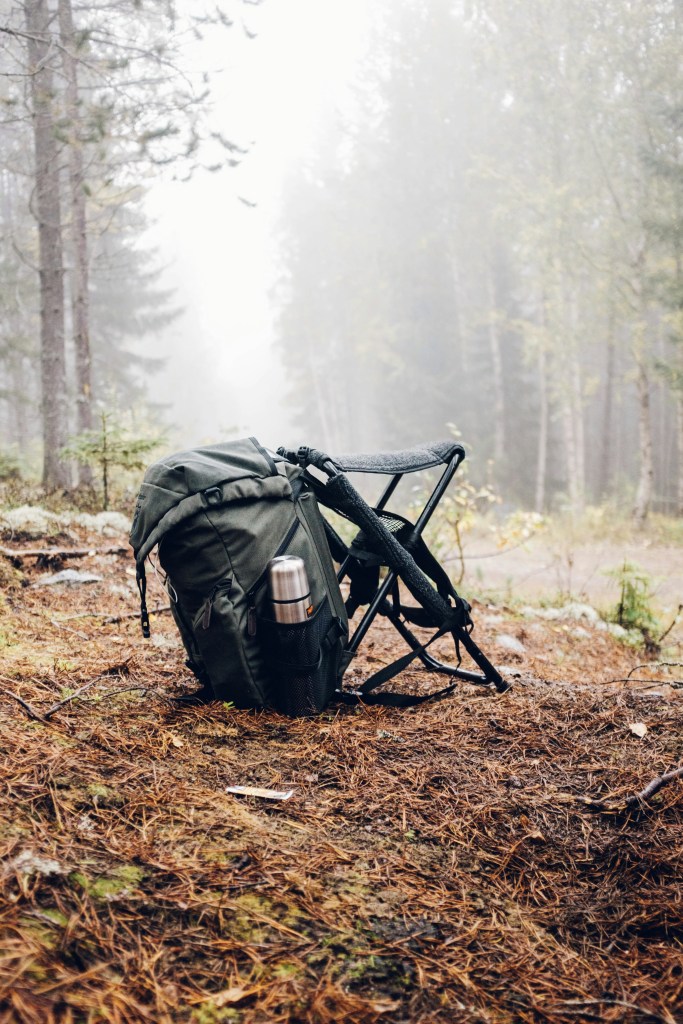
Advanced Hunting Preparation Tips for Success
Exploring advanced tips and techniques can greatly optimize your hunting preparation and subsequently increase your chances of success when you’re out in the field.
The importance of utilizing a range of hunting preparation techniques cannot be overstated, as they contribute significantly to the overall success strategies utilized by hunters.
Essential preparation
One key aspect to consider in your preparation is ensuring that your hunting license is current. It’s essential to renew it if necessary and verify that you have the correct licenses for the specific type of hunting you plan to engage in.
Preparing your firearms and ammunition is crucial. It’s vital to ensure that your firearms are in good working order and that you have an ample supply of ammunition. Taking some practice shots before heading out on a hunt is also highly recommended. This not only helps you familiarize yourself with your firearm but also increases your accuracy and confidence, which are critical for a successful hunt.
Furthermore, a thorough inventory of your gear is necessary to ensure you’re well-prepared. This involves stocking up on items that are running low or replacing those that are missing. Having enough tags and game bags for the game you plan to hunt is important, ensuring you’re equipped to handle and transport your catch legally and efficiently.
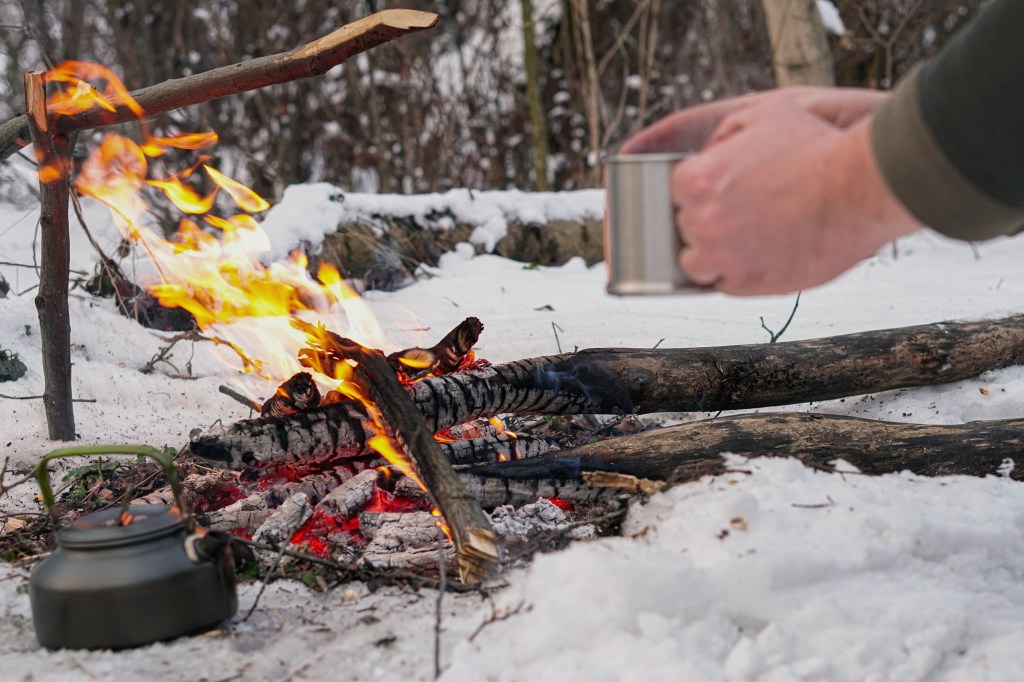
Final Preparations: Ensuring Readiness for Hunting Season
As the hunting season approaches, it’s crucial to ensure that all the necessary final checks and preparations are in place to guarantee a successful and safe experience. Preparing for the hunting season involves more than just checking your equipment; it encompasses a comprehensive review of all aspects of the hunt.
Hunting season readiness
Final preparations are key to ensuring that you’re not just prepared but fully ready for the hunting season. This means going beyond the basic checklist and delving into the details of your gear, permissions, and personal readiness. Make sure that every piece of equipment, from firearms to first aid kits, is in perfect condition and that you are mentally and physically prepared for the challenges of hunting.
Preparing for the hunting season is a process that requires attention to detail and thoughtful planning. This includes securing all necessary licenses and permits, scouting your hunting location, and familiarizing yourself with the local regulations and wildlife patterns. Additionally, it involves preparing your body through fitness and ensuring your skills are honed through practice sessions.
Sources
https://www.backwoodshome.com/preparing-for-hunting-season/
https://morrrange.com/6-ways-to-prepare-for-hunting-season/
https://myodfw.com/articles/hunters-checklist-get-ready-your-hunt
https://www.onxmaps.com/hunt/blog/hunting-gear-essentials
https://www.buckmanager.com/2015/08/11/pre-season-deer-hunting-prep-treestand-safety-tips/
https://www.themeateater.com/wired-to-hunt/whitetail-scouting/how-to-pick-the-right-hunting-spot
